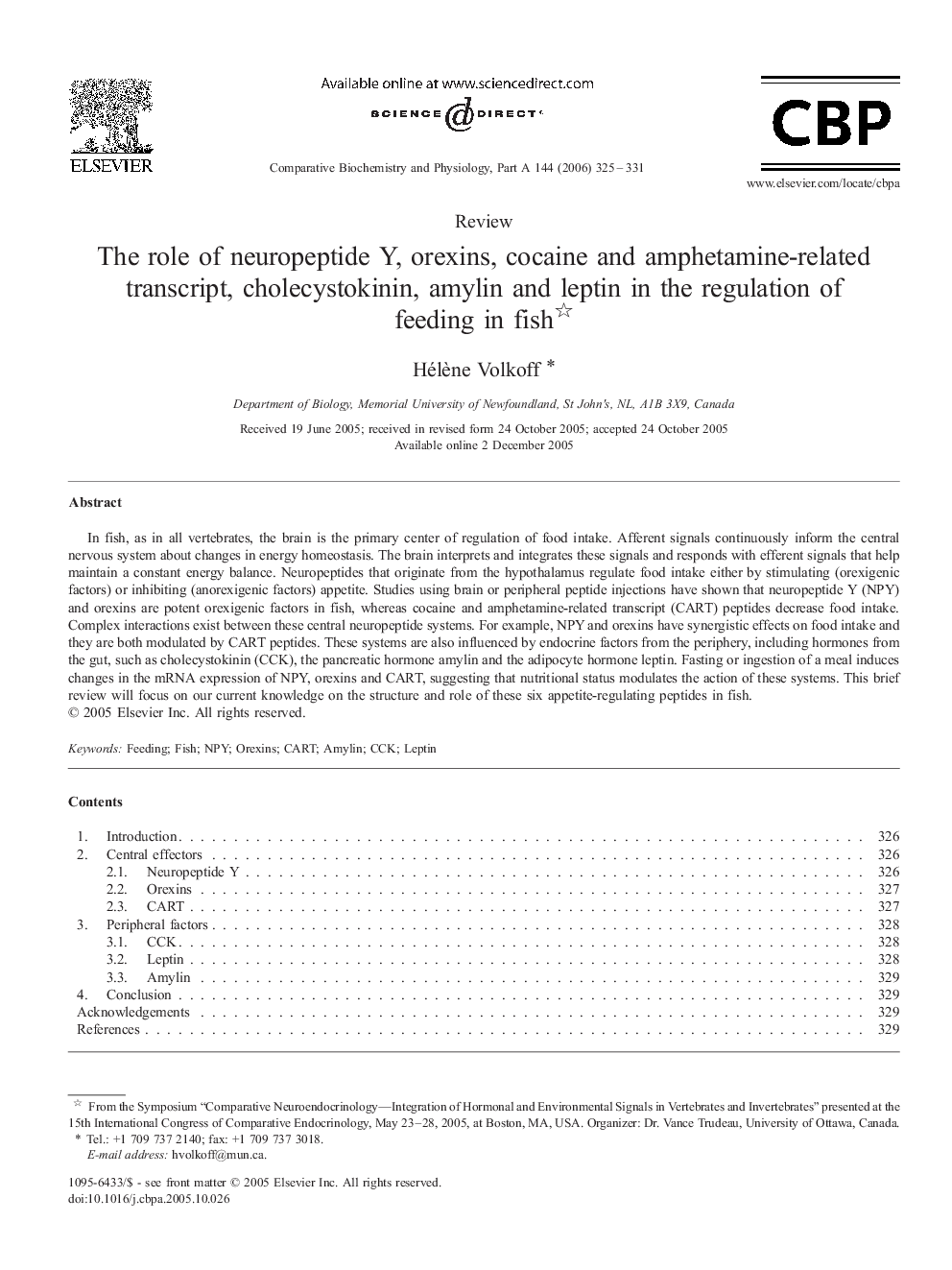| Article ID | Journal | Published Year | Pages | File Type |
|---|---|---|---|---|
| 1974511 | Comparative Biochemistry and Physiology Part A: Molecular & Integrative Physiology | 2006 | 7 Pages |
In fish, as in all vertebrates, the brain is the primary center of regulation of food intake. Afferent signals continuously inform the central nervous system about changes in energy homeostasis. The brain interprets and integrates these signals and responds with efferent signals that help maintain a constant energy balance. Neuropeptides that originate from the hypothalamus regulate food intake either by stimulating (orexigenic factors) or inhibiting (anorexigenic factors) appetite. Studies using brain or peripheral peptide injections have shown that neuropeptide Y (NPY) and orexins are potent orexigenic factors in fish, whereas cocaine and amphetamine-related transcript (CART) peptides decrease food intake. Complex interactions exist between these central neuropeptide systems. For example, NPY and orexins have synergistic effects on food intake and they are both modulated by CART peptides. These systems are also influenced by endocrine factors from the periphery, including hormones from the gut, such as cholecystokinin (CCK), the pancreatic hormone amylin and the adipocyte hormone leptin. Fasting or ingestion of a meal induces changes in the mRNA expression of NPY, orexins and CART, suggesting that nutritional status modulates the action of these systems. This brief review will focus on our current knowledge on the structure and role of these six appetite-regulating peptides in fish.
